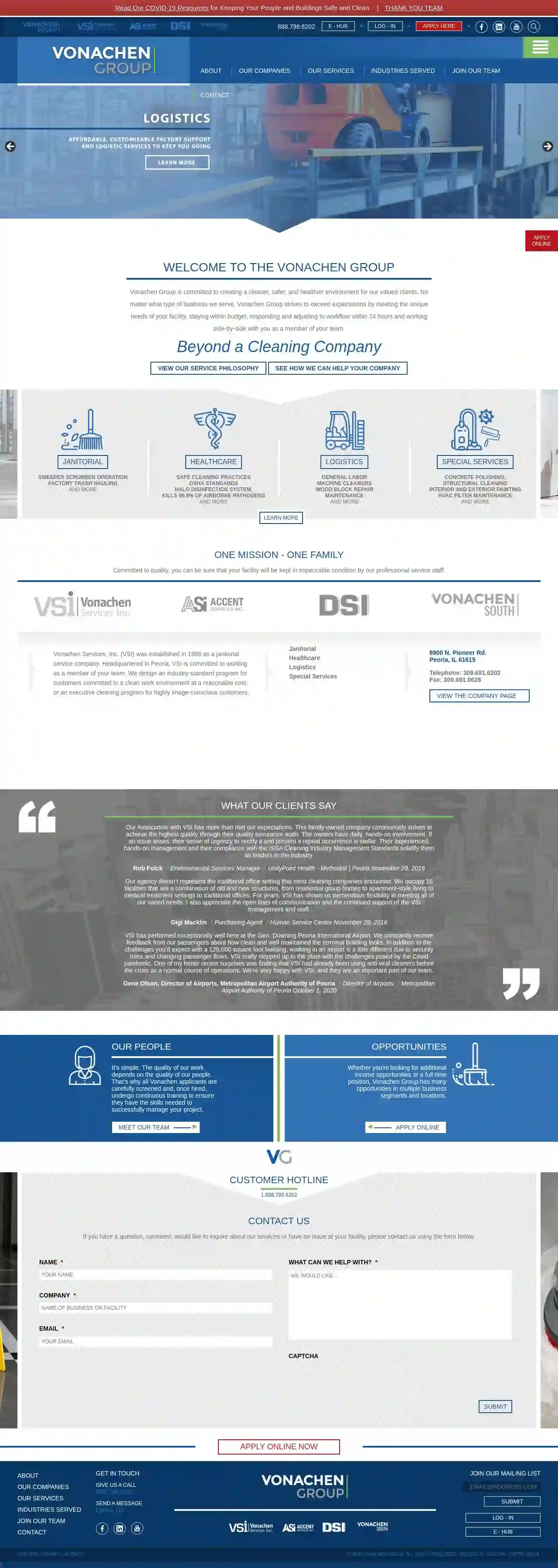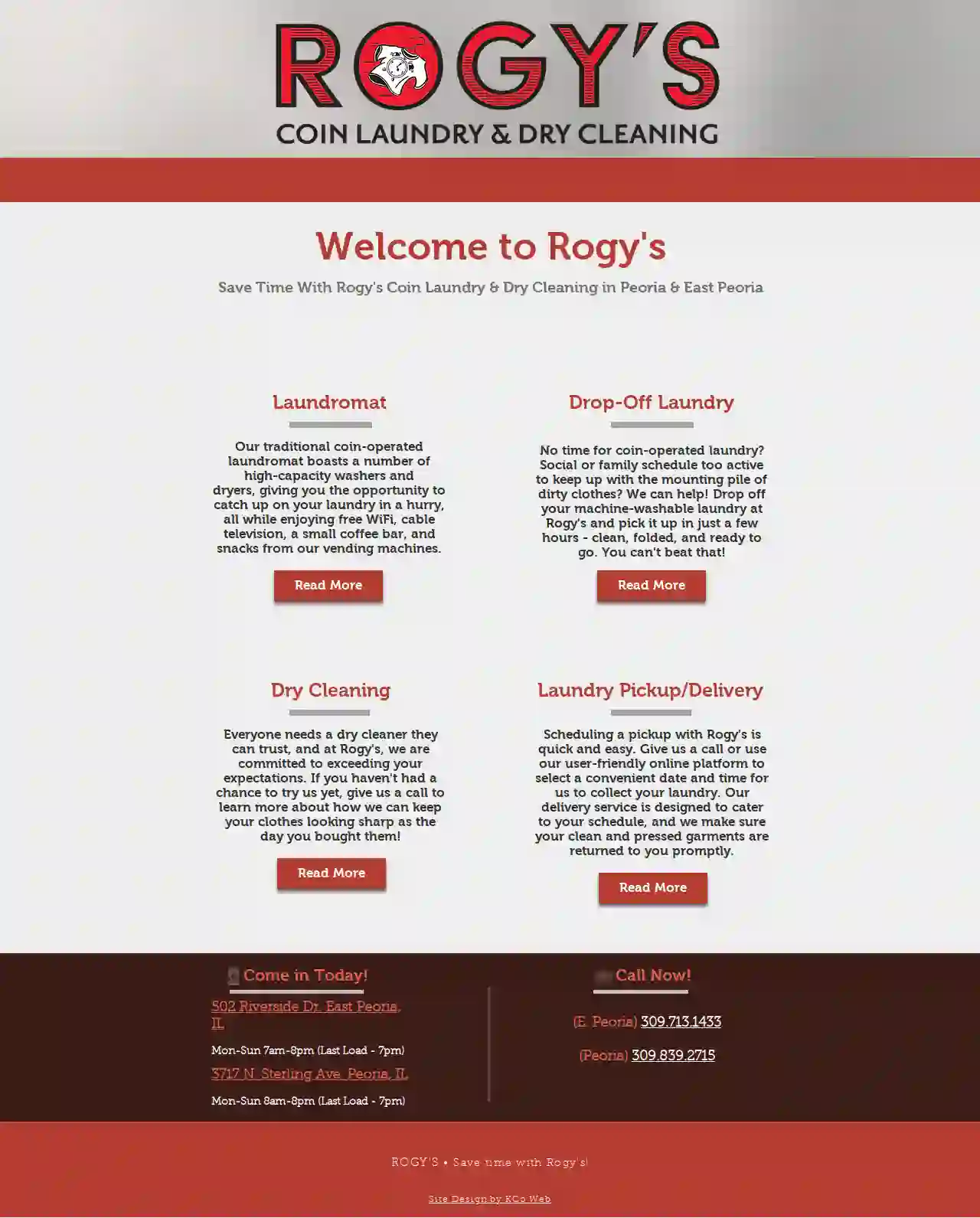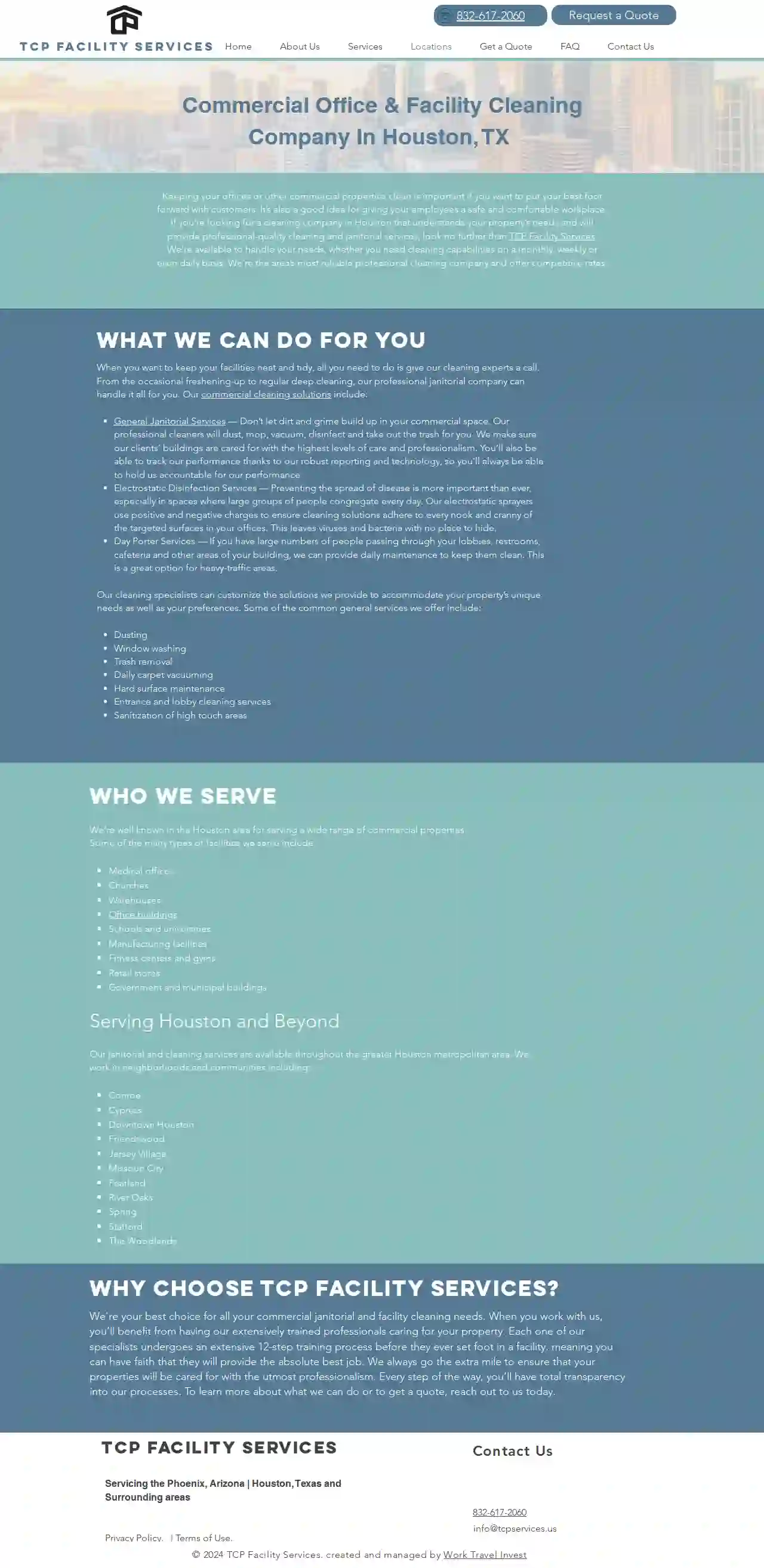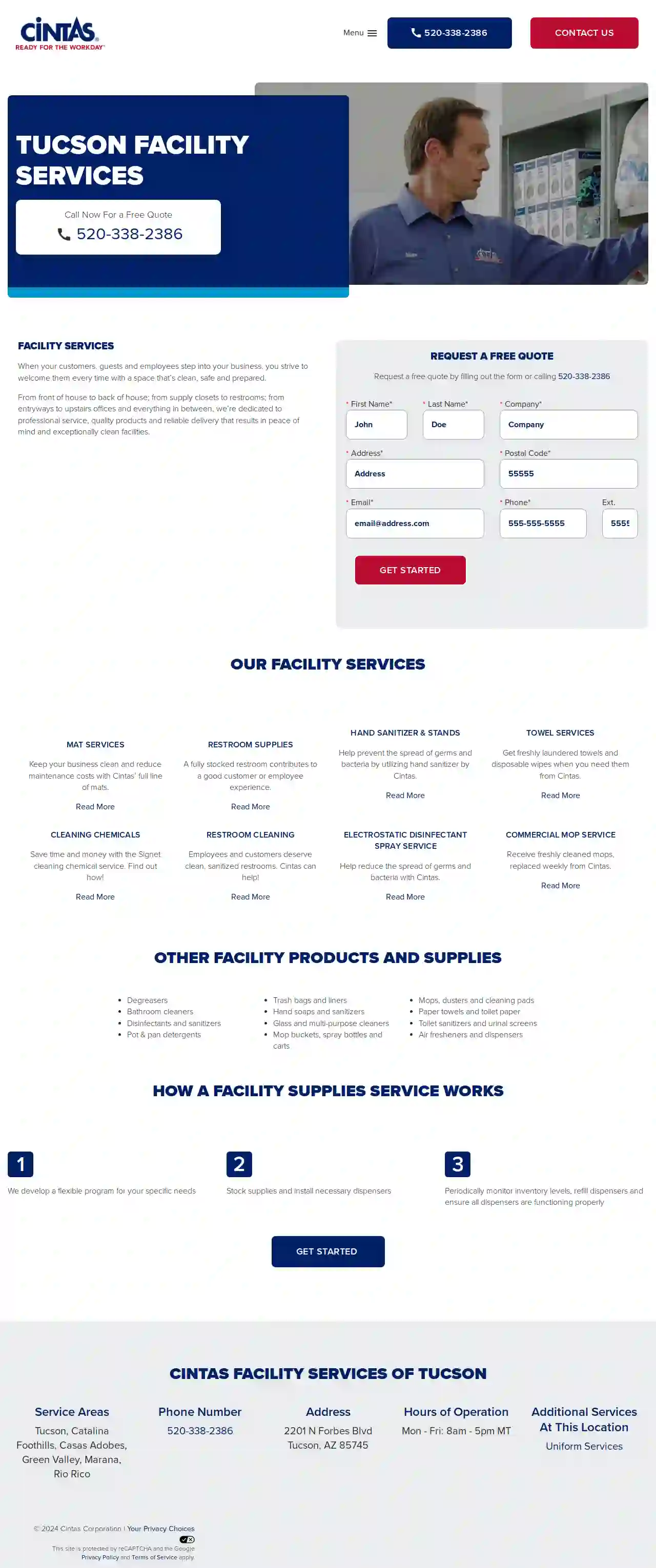Cleaning Services Clarkdale
Find top Home Cleaning in Clarkdale
Get 3 FREE Cleaning quotes for your project today! Compare profiles, reviews, accreditations, portfolio, etc... and choose the best deal.
Service Needed
City or Town

Vonachen Group
3.4122 reviewsPeoria, US- Services
- Why Us?
- Gallery
Get Quote
maid for you cleaning & organizing LLC
4.823 reviewsPeoria, US- Services
- Why Us?
- Gallery
Get Quote
Rogy's Laundry & Dry Cleaning, LLC
4.6118 reviewsPeoria, US- Services
- Why Us?
- Gallery
Get Quote
So Ducking Clean Janitorial Cleaning Services
4.915 reviewsPhoenix, US- Services
- Why Us?
Get Quote
Valley Sparkle Cleaning
4.6133 reviewsPhoenix, US- Services
- Why Us?
Get Quote
The Fresh Sweep
520 reviewsPhoenix, US- Services
- Why Us?
Get Quote
Desert Cleaning Janitorial Services, Inc.
2.65 reviewsTucson, US- Services
- Why Us?
Get Quote
TCP Facility Services
510 reviewsPhoenix, US- Services
- Why Us?
Get Quote- 36
360 Precision Cleaning
4.951 reviewsPhoenix, US- Services
- Why Us?
Get Quote 
Cintas Facility Services
52 reviewsTucson, US- Services
- Why Us?
Get Quote
Over 60,241+ Cleaning Businesses onboarded
Our cleaning services operate in Clarkdale and surroundings!
CleaningMatch has curated and vetted the Best Cleaning Services near Clarkdale. Find the most trustworthy business today.
Frequently Asked Questions About Cleaning Services
Find answers to common questions about cleaning services and hiring cleaning companies in the USA.
- Clean Pet Bedding: Wash pet bedding regularly in hot water to remove odors and bacteria.
- Vacuum Thoroughly: Vacuum carpets, rugs, and upholstery frequently using a vacuum cleaner with a pet hair attachment.
- Enzyme Cleaners: Use enzyme cleaners specifically designed for pet odors. These cleaners break down the odor-causing molecules.
- Baking Soda: Sprinkle baking soda on carpets and upholstery, let it sit for a few hours, then vacuum. Baking soda absorbs odors.
- Air Fresheners: Use air fresheners or diffusers to mask odors temporarily.
- Professional Cleaning: For persistent odors, consider hiring a professional cleaning service specializing in pet odor removal.
- Residential Cleaning: Covers cleaning homes, apartments, and other living spaces.
- Commercial Cleaning: Focuses on cleaning offices, retail stores, and other business establishments.
- Deep Cleaning: A thorough and intensive cleaning that covers areas often neglected during regular cleaning.
- Move-In/Move-Out Cleaning: Comprehensive cleaning performed before or after moving into or out of a property.
- Post-Construction Cleaning: Specialized cleaning after construction or renovation projects to remove debris and dust.
- Specialized Cleaning: Includes services like carpet cleaning, window cleaning, upholstery cleaning, and more.
- Dishes: Load the dishwasher or wash dishes by hand.
- Sink: Clean the sink with a sponge or cloth and dish soap. Pay attention to the faucet and drain. You can also use a baking soda paste to remove stubborn stains.
- Countertops: Wipe down countertops with a disinfectant cleaner or all-purpose cleaner.
- Stovetop: Clean the stovetop with a degreaser or stovetop cleaner. Remove burner grates and wash them separately if needed.
- Oven: Clean the oven according to the manufacturer's instructions. You can use a self-cleaning function or a commercial oven cleaner.
- Microwave: Clean the microwave interior with a damp cloth or sponge. For stuck-on food, heat a bowl of water with lemon juice in the microwave for a few minutes to loosen debris.
- Refrigerator: Wipe down the refrigerator shelves and drawers with a damp cloth or sponge. Remove any expired food and clean spills promptly.
- Floors: Sweep or vacuum the floor, then mop with a floor cleaner suitable for your kitchen floor type.
- Trash: Empty the trash can and recycling bin.
- Cleaning: Removing dirt, dust, and debris from surfaces using soap or detergent and water. It improves the appearance and removes visible contaminants.
- Sanitizing: Reducing the number of bacteria on surfaces to a safe level. It uses chemical disinfectants or heat to kill or inactivate bacteria.
- Disinfecting: Killing or inactivating most disease-causing microorganisms on surfaces. It uses stronger chemical disinfectants than sanitizing and targets a wider range of pathogens.
How do I get rid of pet odors in my home?
Pet odors can linger in a home, creating an unpleasant environment. Here's how to eliminate them:
Regular cleaning, enzyme cleaners, and baking soda are effective methods for eliminating pet odors and maintaining a fresh-smelling home.
Regular cleaning, enzyme cleaners, and baking soda are effective methods for eliminating pet odors and maintaining a fresh-smelling home.
What are the different types of cleaning services?
Cleaning services cater to diverse needs and offer a range of options, including:
The best type of cleaning service depends on your specific needs, the size and condition of the property, and your budget.
The best type of cleaning service depends on your specific needs, the size and condition of the property, and your budget.
What is the most efficient way to clean a kitchen?
A clean kitchen is essential for food safety and a pleasant cooking experience. Here's an efficient kitchen cleaning process:
Regularly cleaning your kitchen helps maintain a hygienic and organized space for cooking and dining.
Regularly cleaning your kitchen helps maintain a hygienic and organized space for cooking and dining.
What is the difference between cleaning, sanitizing, and disinfecting?
While often used interchangeably, cleaning, sanitizing, and disinfecting have distinct meanings:
Cleaning is usually the first step, followed by sanitizing or disinfecting depending on the level of hygiene required.
Cleaning is usually the first step, followed by sanitizing or disinfecting depending on the level of hygiene required.
How do I get rid of pet odors in my home?
Pet odors can linger in a home, creating an unpleasant environment. Here's how to eliminate them:
Regular cleaning, enzyme cleaners, and baking soda are effective methods for eliminating pet odors and maintaining a fresh-smelling home.
- Clean Pet Bedding: Wash pet bedding regularly in hot water to remove odors and bacteria.
- Vacuum Thoroughly: Vacuum carpets, rugs, and upholstery frequently using a vacuum cleaner with a pet hair attachment.
- Enzyme Cleaners: Use enzyme cleaners specifically designed for pet odors. These cleaners break down the odor-causing molecules.
- Baking Soda: Sprinkle baking soda on carpets and upholstery, let it sit for a few hours, then vacuum. Baking soda absorbs odors.
- Air Fresheners: Use air fresheners or diffusers to mask odors temporarily.
- Professional Cleaning: For persistent odors, consider hiring a professional cleaning service specializing in pet odor removal.
Regular cleaning, enzyme cleaners, and baking soda are effective methods for eliminating pet odors and maintaining a fresh-smelling home.
What are the different types of cleaning services?
Cleaning services cater to diverse needs and offer a range of options, including:
The best type of cleaning service depends on your specific needs, the size and condition of the property, and your budget.
- Residential Cleaning: Covers cleaning homes, apartments, and other living spaces.
- Commercial Cleaning: Focuses on cleaning offices, retail stores, and other business establishments.
- Deep Cleaning: A thorough and intensive cleaning that covers areas often neglected during regular cleaning.
- Move-In/Move-Out Cleaning: Comprehensive cleaning performed before or after moving into or out of a property.
- Post-Construction Cleaning: Specialized cleaning after construction or renovation projects to remove debris and dust.
- Specialized Cleaning: Includes services like carpet cleaning, window cleaning, upholstery cleaning, and more.
The best type of cleaning service depends on your specific needs, the size and condition of the property, and your budget.
What is the most efficient way to clean a kitchen?
A clean kitchen is essential for food safety and a pleasant cooking experience. Here's an efficient kitchen cleaning process:
Regularly cleaning your kitchen helps maintain a hygienic and organized space for cooking and dining.
- Dishes: Load the dishwasher or wash dishes by hand.
- Sink: Clean the sink with a sponge or cloth and dish soap. Pay attention to the faucet and drain. You can also use a baking soda paste to remove stubborn stains.
- Countertops: Wipe down countertops with a disinfectant cleaner or all-purpose cleaner.
- Stovetop: Clean the stovetop with a degreaser or stovetop cleaner. Remove burner grates and wash them separately if needed.
- Oven: Clean the oven according to the manufacturer's instructions. You can use a self-cleaning function or a commercial oven cleaner.
- Microwave: Clean the microwave interior with a damp cloth or sponge. For stuck-on food, heat a bowl of water with lemon juice in the microwave for a few minutes to loosen debris.
- Refrigerator: Wipe down the refrigerator shelves and drawers with a damp cloth or sponge. Remove any expired food and clean spills promptly.
- Floors: Sweep or vacuum the floor, then mop with a floor cleaner suitable for your kitchen floor type.
- Trash: Empty the trash can and recycling bin.
Regularly cleaning your kitchen helps maintain a hygienic and organized space for cooking and dining.
What is the difference between cleaning, sanitizing, and disinfecting?
While often used interchangeably, cleaning, sanitizing, and disinfecting have distinct meanings:
Cleaning is usually the first step, followed by sanitizing or disinfecting depending on the level of hygiene required.
- Cleaning: Removing dirt, dust, and debris from surfaces using soap or detergent and water. It improves the appearance and removes visible contaminants.
- Sanitizing: Reducing the number of bacteria on surfaces to a safe level. It uses chemical disinfectants or heat to kill or inactivate bacteria.
- Disinfecting: Killing or inactivating most disease-causing microorganisms on surfaces. It uses stronger chemical disinfectants than sanitizing and targets a wider range of pathogens.
Cleaning is usually the first step, followed by sanitizing or disinfecting depending on the level of hygiene required.